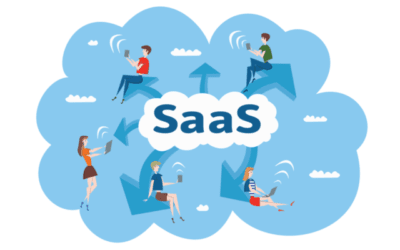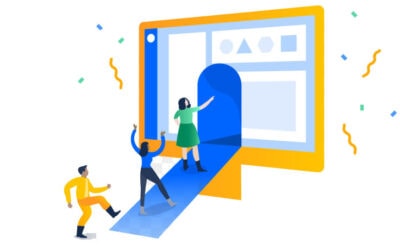The world coronavirus pandemic is completely modernizing the market - both B2B and B2C – by displacing buyer demand from physical needs to electronic ones. Relying on IBM Retail Index, request for purchase in conventional shops decreased by 25% under the results of the 2020 year. According to the results of the whole year, a total decrease in demand by 60% is forecasted. At that, the rise in sales through e-commerce is predicted at the level of 20% and above.
Can the offline market survive in regress period?
Based on analytics, physical retail purchases will be moved aside, because during the pandemic users have accustomed to draw up orders using gadgets from the comfort of your home. The only chance to return the demand to the previous level and not to lose its CA in the least – are multichannel sales and step-by-step purchases. Thus, clients may be returned to the shop yet, with a significant reduction in attendance period. The leading world networks have already protested and successfully introduced the following methods:
- Online purchases with customer pick-up under BOPIS technology. This method permits to erase boundaries between shop shelves and gadget screens while selecting consumer goods.
- VR/AR technologies are permitting to try on the product through apps directly from home. Physical absence in the shop for trying on may not threaten the sales rate if clients are allowed to search for “their” goods using mobile solutions.
Location-based capture. Capture technologies of clients’ gadgets with up-to-date offers and sales promotions are tested on the 2019 year market. But now they have become high on the list to attract visitors to shops for everyday purchases.
Although it is necessary to remark that it is just a temporary solution until the market starts functioning online in full. Namely, the pandemic accelerated this process almost for five years. Nevertheless, several significant transformations took place.
Full readiness: 100% transition to online mode
We are sure that the B2C industry sustained the largest losses in the sphere of services since the introduction date of Covid-19 protective measures. Business directions, where services cannot be rendered without the client’s presence, also improved their operating mechanisms using IT. Now full or partial automation of the processes before the direct operation with the client – is not a whim, but a necessity.
Scoring algorithms go beyond banks. Earlier the systems for clients’ preliminary assessment, segmentation and ranging by different principles were used exceptionally in the banking sphere while providing loans. At present, scoring algorithms are used as the marketing tool for preliminary assessment and forecasting ensuring maximum efficient cooperation with a client (either potential or valid). For example, following Accenture data 91% of clients are ready to purchase in companies that emphasize personalization of the product and offer.
Robotic automation of logistic operations. Platonism or technology permitting to transport goods without a driver and a forwarding driver has become vital in the period of quarantine. Delivery of goods without physical contact of a courier and a buyer gained importance, first of all, due to the uprising healthcare trend. According to IBM report data, buyers started to take care not only of their own health but of the others. For this reason, when choosing between equal offers the one with excluded physical contact will be preferred.
Plug-and-play technology realization when delivering services. The physical market of services suffered first and foremost. Gyms, consulting companies, beauty salons, educational institutions. Services sharing without physical contact is a must-have if the company is going not only to survive but to rise. With such an approach, the business may receive not just flow of inquiries accustomed earlier, but to broaden the scale due to missing necessity to ensure comfortable physical presence in the restricted area. Online training sessions, online consultations, self-made services are a new trend. Also, it is approved by statistics: demand for online servicing at the biggest freelance areas increased, on average, by 30%.
Smart production through machine learning technologies. According to ECLAC data, as a result of the pandemic, the production market is going to be reduced by 2.7 mln. companies, and, thus, 8.5 mln. workplaces are going to be lost. One of the reasons is the loss of a company because of overproduction. Scarcity of funds as a result of the excessive purchase of raw material is one of the consequences of missing planning. Approaches based upon Big Data analysis combined with machine learning are more flexible and precise permitting to use their capabilities to the utmost for forecasting and planning in the production sector.
Voice commercialization in the priority above SEO. Use of gadgets with voice recognition systems is a trend that emerged before the beginning of Covid-19. For instance, following NPM data, in the period of a pandemic, application of the voice-activated digital assistant more than once a day among users of gadgets with such functions increased from 46% up to 52%. For this reason, audio purchase technologies are being actively introduced by global trade networks, winning buyers all over the world. Such a narrow market will, probably, get more attention due to lower competitiveness than routine ranging of offers in ordinary Google search.
General Soft specialists constantly keep an eye at the world innovations in e-commerce. Are you interested in the opportunities offered by modern IT solutions? Our experts will consult you on the issue if their introduction directly into your business processes.






